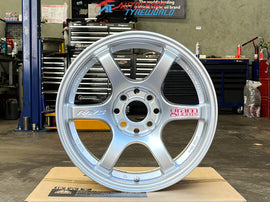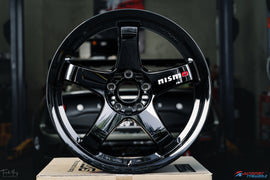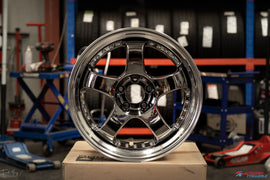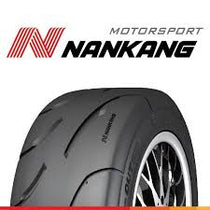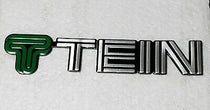Electric Vehicle Tyres – Everything You Need to Know
The best tyres for electric cars and hybrids
Driving the Future of Mobility
Electric vehicles (EVs) and low-emission hybrids are transforming the way we move.
But while the engines may be changing, the connection between the car and the road — the tyre — remains just as vital.
Tyres for electric and hybrid vehicles must meet new challenges: higher weight, instant torque, and ultra-quiet operation — all while maximising efficiency and range.
So, while we haven’t had to reinvent the wheel, we’ve certainly had to rethink it.
Here’s everything you need to know about how EV tyres differ, the latest innovations driving their performance, and how to choose the right set for your vehicle.
The New Demands of Electric Vehicles
Compared to traditional combustion cars, electric vehicles offer numerous benefits:
-
Lower emissions
-
Reduced maintenance
-
Minimal engine noise
-
Lower running costs
However, these advantages come with unique technical challenges that directly affect the tyres.
1. Increased Weight
The battery pack — the heaviest component of any EV — adds significant mass.
This means EV tyres must withstand greater loads and higher cornering forces.
To manage this, tyre manufacturers have introduced the HL (Heavy Load) designation, which is typically three load indexes higher than a standard Extra Load (XL) tyre.
2. Instant Torque
Electric motors deliver maximum torque the moment you press the accelerator.
While this provides exhilarating performance, it also causes greater strain and faster wear on the tyres — particularly the front ones.
3. Longer Braking Distances
The increased vehicle mass means EVs require longer braking distances, so tyre grip is more important than ever.
Advanced tread compounds and optimised patterns help compensate for this and maintain safety.
4. Lower Noise Levels
Because EVs are so quiet, tyre noise becomes much more noticeable inside the cabin.
To address this, Continental has developed ContiSilent™ technology, which uses a polyurethane foam layer inside the tyre to reduce interior noise by up to 9 dB(A) — without affecting performance.
Continental’s Four Core EV Tyre Innovations
Our tyre specialists have developed new solutions to meet the unique demands of electric vehicles in four key areas:
-
Higher Load Capacity:
HL-designated tyres are built for the extra weight of battery-powered cars. -
Enhanced Grip:
Improved tread compounds ensure short braking distances despite higher mass. -
Noise Reduction:
Technologies like ContiSilent™ keep the cabin quiet even at high speeds. -
Energy Efficiency:
Optimised tread patterns and materials reduce rolling resistance — extending driving range and reducing energy consumption.
Choosing the Right Tyres for Electric or Hybrid Vehicles
The right tyres can improve your EV’s range, safety, and comfort.
Here are the main factors to consider when buying new electric or hybrid car tyres.
1. Check the Load Index
Because EVs are heavier, it’s critical to choose tyres that can handle the additional weight.
For many vehicles, Extra Load (XL) tyres are sufficient. However, for heavier electric models, Heavy Load (HL) tyres may be required.
Always refer to your vehicle’s manual or consult a tyre professional to confirm the correct load rating.
2. The Sound of Silence
EVs produce very little drivetrain noise, so road and tyre noise become more noticeable.
Choose tyres with sound-absorbing technology like ContiSilent™, which can cut cabin noise by up to 9 dB for a quieter, more comfortable drive.
3. Low Rolling Resistance = Longer Range
In electric cars, rolling resistance has a direct impact on driving range.
A tyre with an EU tyre label value of “A” for rolling resistance can improve range by up to 12%.
That translates to around 30 miles (50 km) of extra distance for an EV with a 250-mile (400 km) range compared to a “C”-rated tyre.
Tip: When comparing tyres, always check the EU tyre label — it provides useful information about energy efficiency, wet grip, and noise performance.
4. Tyre Longevity — How Long Do EV Tyres Last?
There’s a common belief that EV tyres wear out faster than those on combustion cars — but the truth depends on several factors.
-
In tests, two-wheel-drive EVs can reduce tyre lifespan by about 25% compared to similar petrol or diesel cars.
-
Conversely, four-wheel-drive EVs (which distribute torque more evenly) can actually make tyres last up to 10% longer.
The biggest factor remains driving style.
Aggressive acceleration, hard braking, and sharp cornering will wear tyres faster — whether you’re driving an EV or not.
Tyre Care and Maintenance for Electric Vehicles
To extend tyre life and maintain peak performance, follow these best practices:
-
Check air pressure regularly. Tyre pressure affects both range and wear — even slight underinflation can reduce efficiency.
-
Inspect wheel alignment every six months, or sooner after hitting a pothole or curb. Misalignment causes uneven wear and reduces tyre life.
-
Replace tyres in matched sets or axle pairs to maintain even handling and braking.
-
Choose Original Equipment (OE) tyres when possible — these are specifically engineered for your EV model.
Continental Tyres for Leading EV Manufacturers
Continental tyres are trusted by many of the world’s top electric vehicle manufacturers.
In 2020, six of the ten highest-volume EV makers equipped their cars with Continental tyres, including:
-
Tesla (Model 3, Model S)
-
Volkswagen (ID.3)
-
BYD and other major Asian electric car manufacturers
These partnerships reflect our commitment to innovation, safety, and sustainability — ensuring that every EV performs at its best on Continental tyres.
Final Thought
Electric vehicles are redefining mobility — and their tyres must rise to meet new challenges.
Continental’s technology ensures EV and hybrid drivers enjoy:
✅ Longer range through low rolling resistance
✅ Quieter comfort thanks to sound-absorbing design
✅ Durability under higher loads
✅ Safety and grip to handle instant torque and greater mass
As we move toward an emission-free future, Continental continues to innovate — because the road ahead deserves nothing less than the most advanced tyres ever built.

